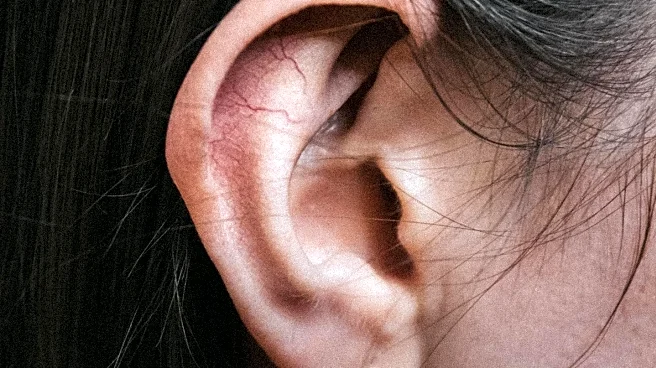What's Happening?
Recent research indicates that misophonia, a condition characterized by strong negative reactions to specific sounds, may be linked to cognitive and emotional inflexibility. The study found that individuals with misophonia struggle with emotional task-switching and exhibit rigid thinking patterns. These traits are also associated with rumination, a repetitive negative thinking process. The findings suggest that misophonia involves broader issues of emotion regulation and executive function, beyond just sensory processing.
Why It's Important?
Understanding misophonia as more than a sensory disorder could lead to more effective treatments. By identifying cognitive and emotional inflexibility as key components, therapies targeting these areas, such as cognitive-behavioral therapy, may help alleviate symptoms. This research highlights the need for a comprehensive approach to mental health conditions that considers cognitive and emotional factors, potentially improving outcomes for those affected by misophonia and similar disorders.
Beyond the Headlines
The study's findings challenge the traditional view of misophonia and open new avenues for research into its underlying mechanisms. By focusing on cognitive and emotional regulation, future studies could explore the potential for cross-diagnostic treatments that address common cognitive patterns across various mental health conditions. This approach could lead to more personalized and effective interventions.









